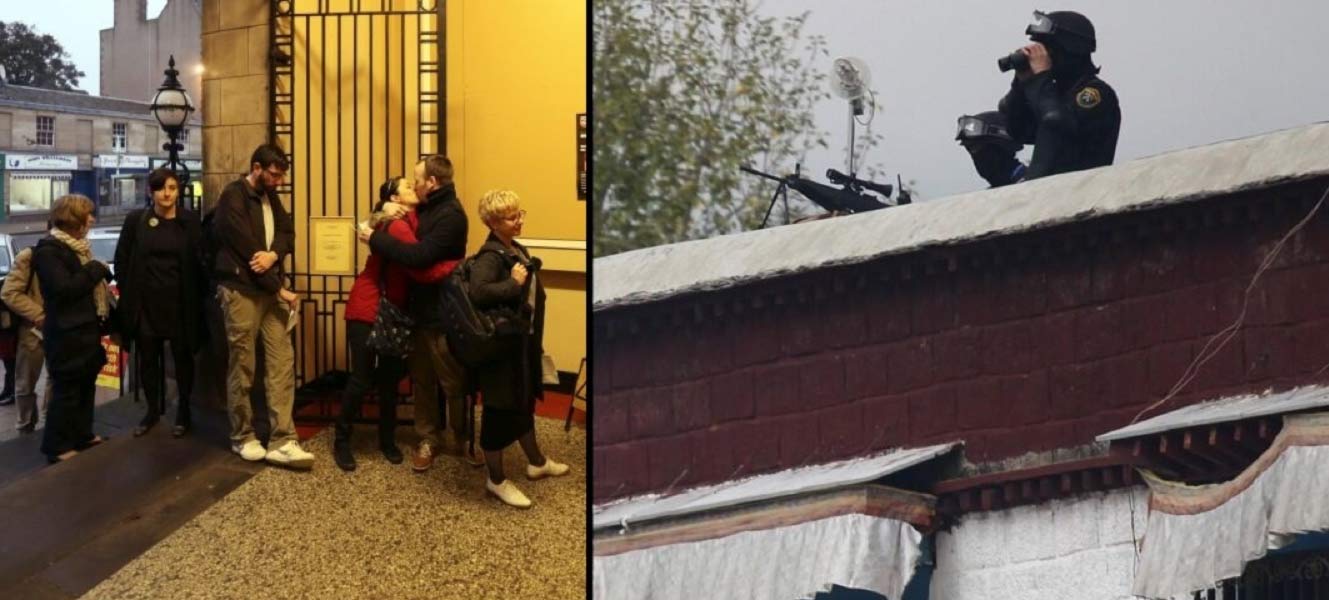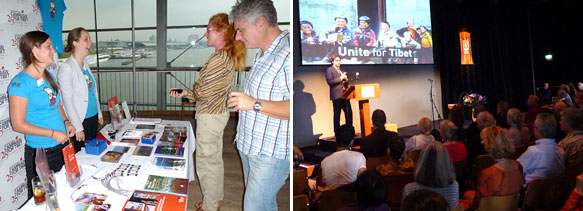
Left: Scottish voters line up at a polling station.
Right: Snipers on a Lhasa rooftop.
To begin with, the framing of the issue reflected the peculiar narratives crafted by Beijing. One Global Times headline asked if a minority would decide the UK’s fate[2]. But this referendum concerned Scotland first and foremost, and it should be noted that the Scottish are not the minority in Scotland, but are in fact 84% of the population. It seems quite sensible that the Scottish would determine the fate of Scotland, and it’s hard to see how members of the Chinese Communist Party Standing Committee could argue with that; every single one of them, since the founding of the People’s Republic of China, has been ethnically Chinese. The real question is whether or not the UK should be in control of Scotland, and it’s here that we find Beijing’s real objection. If the Scottish can debate and vote on their union with the UK, why shouldn’t the Tibetans, Uyghurs, Mongolians, Hong Kongers, and Taiwanese be allowed to do the same today in regards to the PRC?
At times the stories almost seemed to be trying to goad London into overreacting. The Global Times wrote that “liberal practices in the UK might have worked in the past, but now are facing immense uncertainty.” But if we look at the illiberal practices favored by Beijing in responding to perceived threats to their authority- tanks in Tiananmen, missiles aimed at Taiwan, armored personnel carriers driving around Hong Kong, and rule by force in Tibet- and look at the outcomes they’ve fostered, the difference couldn’t be any clearer. On September 18 an astonishing 84.6% voter turnout rendered a democratic decision in which the level of violence never rose above strenuous flag-waving. Contrast this with China, where the Global Times says that “legal, political and moral systems play an effective role” in curbing separatism, but which has been roiled by massive Tibetan protests, harsh crackdowns, and over 130 self-immolations over the last few years. In one revealing news story, one county in Tibet has made so many arrests lately, and anticipates so many more in the future, that they’ve had to enlarge the paramilitary police detention center used to hold Tibetan political prisoners.
It seems that the system China is mainly dependent on force and the threat of violence, while in reality the local legal, political, and moral systems actually did result in peaceful outcome for Scotland. China should find inspiration there instead of deriding it, and allow the minorities of the PRC to freely exercise self-determination in deciding their own futures as well.
Warning – The safety of links to Chinese news sites cannot be guaranteed:
[1] Global Times: http://www.globaltimes.cn/content/882270.shtml
[1] Global Times: http://www.globaltimes.cn/content/881434.shtml


